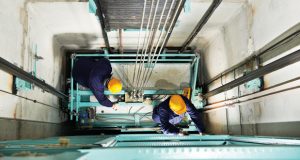According to new research, over 70 per cent of energy sector respondents believe that digital technologies, particularly artificial intelligence (AI) and grid software, are essential to enabling the clean energy transition. Such technology supports the integration of renewables, transition to electrification, and optimisation of energy efficiency, all of which are key to reducing fossil fuel usage.
The Siemens Infrastructure Transition Monitor 2025, which surveyed 1,400 senior executives, shows that 59 per cent of energy industry leaders plan major investments in autonomous systems for grids, and 68 percent view them as crucial for cutting emissions. Nearly three-quarters (72 per cent) of organisations in the sector say that, over the next three years, AI will transform how their business operates, with 74 per cent saying that AI is helping to make critical infrastructure more resilient.
Respondents indicated that the most likely outcomes from increased use of autonomous systems to manage power grids are lower operating costs, increased energy efficiency, and greater reliability.
While the 2025 study indicated significant progress on a number of important goals such as the phase-out of fossil fuel energy and the expansion of large-scale energy storage and renewable generation compared to results in the 2023 Infrastructure Transition Monitor, there are still opportunities for even greater progress.
Indeed, over half of companies in the energy sector (58 per cent) say uncertainty about future energy system design is delaying investment in clean energy technologies. And, while 65 per cent agree that electrification is the most feasible way to achieve net zero energy systems, 73 per cent report that it is being held back by inadequate grid infrastructure.
Sabine Erlinghagen, CEO of Siemens Grid Software, said: “Outdated grid infrastructure poses a serious threat to the clean energy transition. By harnessing digital technologies to move towards autonomous grids, it is possible to boost grid capacity, ensuring its reliability and resilience. To that end, regulation must also keep pace with digitalisation and innovation – ensuring that our energy systems are equipped to meet the demands of a clean energy future.
The way we work has changed – yet, many organisations are still relying on rigid, one-size-fits-all tools to manage desks and meeting rooms, according to a new study from workplace management solutions provider, Matrix Booking.
Spreadsheets, calendars, and generic booking software may have worked once, but they’re struggling to keep pace with today’s flexible, hybrid workforce. The result? Wasted time, frustrated employees, and expensive underutilised space.
Matrix Booking’s new study, ‘One-size-fits-all booking systems don’t work for today’s workforce’, explores why current systems are falling short – and how organisations can reimagine workspace management to boost efficiency, employee experience, and cost savings.
To download your FREE copy click here.





